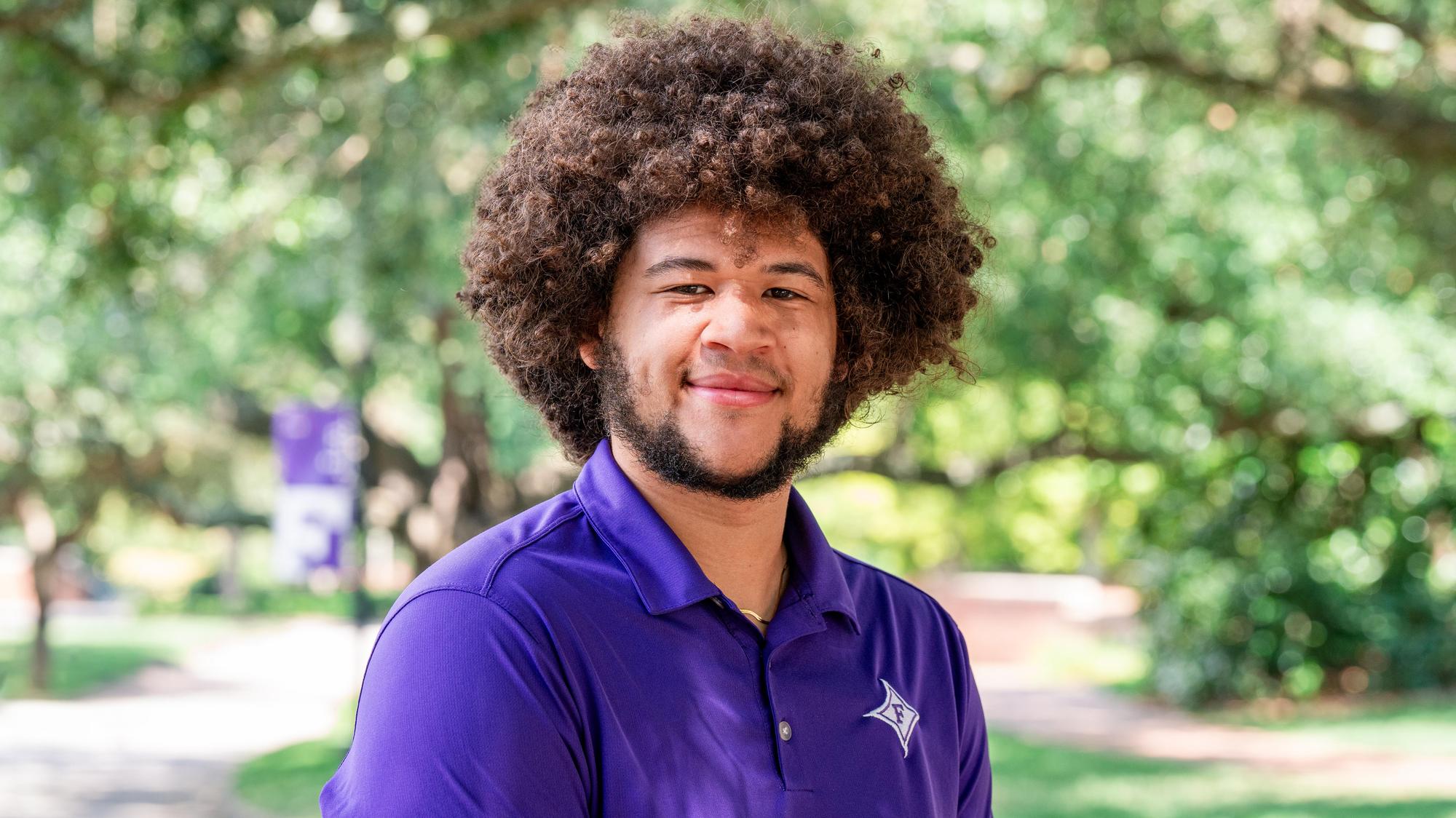Senior seeks sustainability in the ‘beloved community’

Black History Month at Furman
Read more stories >>
In the mid-20th century, the Rev. Martin Luther King Jr. took the idea of the “beloved community” from Josiah Royce, founder of the Fellowship of Reconciliation. In his speeches and writing, King recast Royce’s abstract utopian beloved community as a practical goal that can be built by people of good will.
“It’s a global community where people will have the right to live and have access to the Earth in all its abundance, the right to not be discriminated against, and to be able to live a fulfilled life in companionship with everybody who lives around you,” said Miles Baker ’24, who spoke on the subject at Furman’s annual MLK Community Breakfast this year.
The beloved community may seem distant today, said Baker, the president of Furman’s NAACP chapter.
“It can feel difficult to talk about the beloved community today with how tumultuous the world has been recently, with all the things happening in Gaza, Sudan and other places around the globe,” he said. “But it’s important to tell the truth about Dr. King and tell the truth about the situations that happen around us.”
Start where your feet are, Baker told the audience. “Be present in the community you already have, and do your best to make it more welcoming and inclusive to people who may not feel that way.”
Baker sees his studies as a step toward making the global community more sustainable as well as welcoming and inclusive. A sustainability science major, he is applying to graduate programs in urban planning and environmental policy, with a goal of working in local government.
“A lot of my draw to the major was tackling the issues of sustaining a world where things are more equal,” said Baker, who is also a member of the Quaternion Senior Order honors society and a peer mentor in Furman’s Pathways Program. “That’s the work I want to do. How can we be more just and equitable in how we take care of people, but also how we take care of the planet?”
In Summer 2023, Baker worked as a research assistant to Matthew Cohen, an associate professor of sustainability science. “I particularly asked questions about how prevalent justice is – or isn’t – in climate action planning in the U.S. over the last five years,” he said. “Hopefully, we can continue doing some research on that.”
Black History Month can be an occasion to reflect the challenges in Black communities, but it’s also critical to remember the positives, said Baker.
“It’s important to celebrate Black joy, Black happiness, Black progress,” he said. “We should be intentional about spreading positivity through community. And it shouldn’t be limited just to this month.”
Furman has made noteworthy efforts to engage in difficult conversations about diversity and inclusion, noted Baker, including a general education requirement for a course focusing on identities, equity and justice. And while it’s necessary to have these difficult conversations, they can also take a lot out of you, he said.
“It’s OK to rest,” said Baker. “These topics can be draining, and it can be really challenging to go through them. Taking the steps to take care of yourself is also important. Rest is resistance; resist the urge to do too much.”
The theme of Black History Month 2024, African Americans and the Arts, particularly resonated with Baker, a jazz fanatic.
“Sonically, Black creativity shines through in jazz music,” he said. “It’s always inspiring new generations of people to be creative and not be limited in what art or music is.”
Born and raised in Greenville, South Carolina, the senior shares with his parents and grandparents a love of musicians like Wynton Marsalis, Wayne Shorter, Thelonious Monk – and especially Miles Davis.
“It’s no accident I’m named Miles,” he laughed.